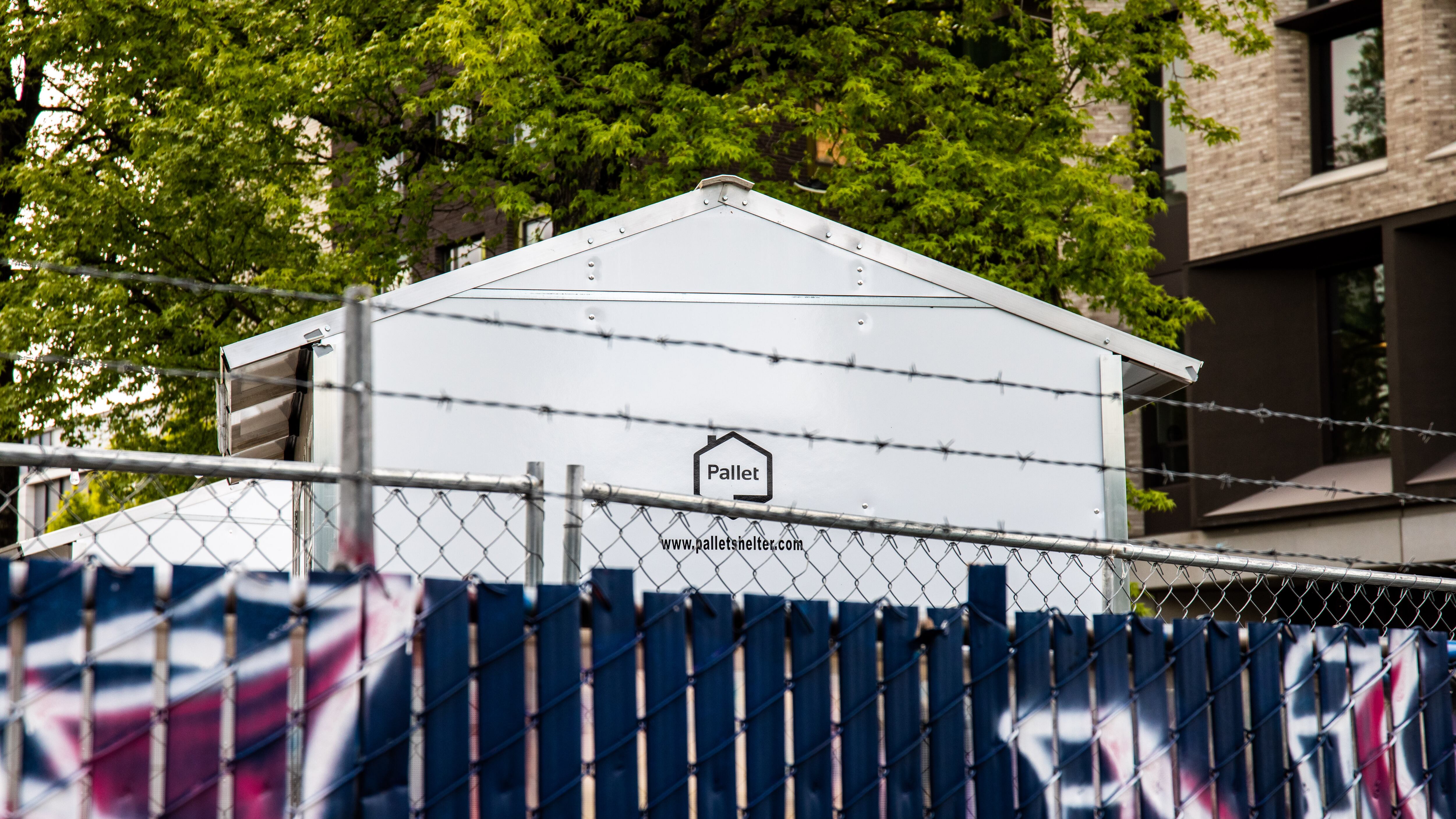As the city of Portland plans to triple the size of the tiny house villages that it set up two years ago, it will offload 28 existing tiny houses at one of those villages and replace them with new ones, costing $16,500 apiece.
The city has purchased 100 new pods for its “safe rest village” in Multnomah Village, which is the first village the city set up in 2022 after a litany of delays and setbacks. The village has over the past two years housed about 30 people who otherwise would be living on the streets. Earlier this year, the city announced its plans to triple the size of at least two of its safe rest villages, including the Multnomah Village site, citing the program’s success in transitioning people from homelessness to tiny house to permanent house.
But as part of the village’s expansion this year, the city has decided to ditch the existing 28 tiny houses for 100 brand new ones, an expense of $1.5 million. The city will return the 28 pods to Multnomah County, which allowed the city to borrow them—brand new at the time—two years ago.
A city spokesman for the safe rest villages, Bryan Aptekar, says replacing the existing pods will ensure that “the village sleeping units are consistent and equitable for all participants” and described general wear and tear endured by the 28 existing pods since the opening of the village two years ago.
“The industry that supplies sleeping units for this purpose is relatively young. We are working with several companies for which this is a new product,” Aptekar says. “Through experience of use, weather conditions, and so forth, we are providing feedback and improvements are being made to the base model.”
Aptekar adds that the 100 new pods pods will have better “door locks, heaters [and] insulation”.
The safe rest villages are an expensive endeavor: The city says it costs between $1.5 million and $3 million annually to run each village. The villages have been almost exclusively funded by federal COVID-19 relief dollars; that funding is set to expire in December of this year. It’s unclear how the city will fund the villages after those federal dollars are gone.
Aptekar says he’s unsure if the company from which the city ordered new pods is also the maker of the original 28 pods.
County officials did not say whether they have plans for the returned pods.

